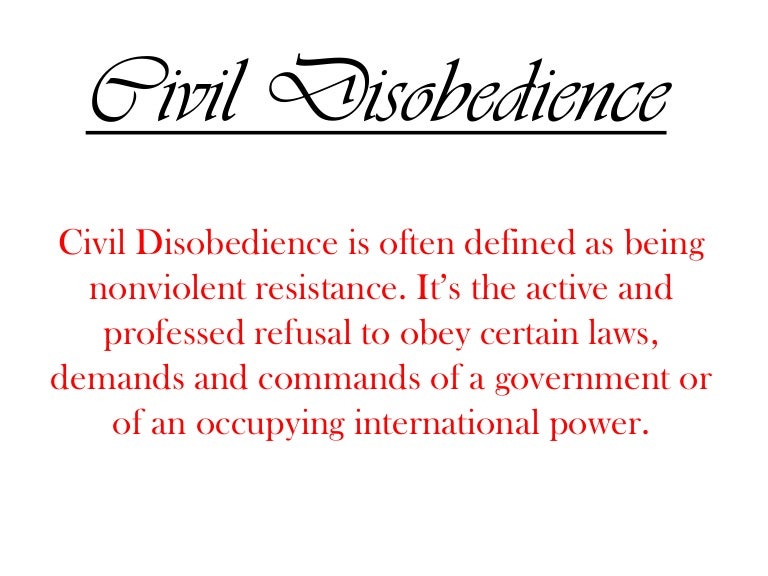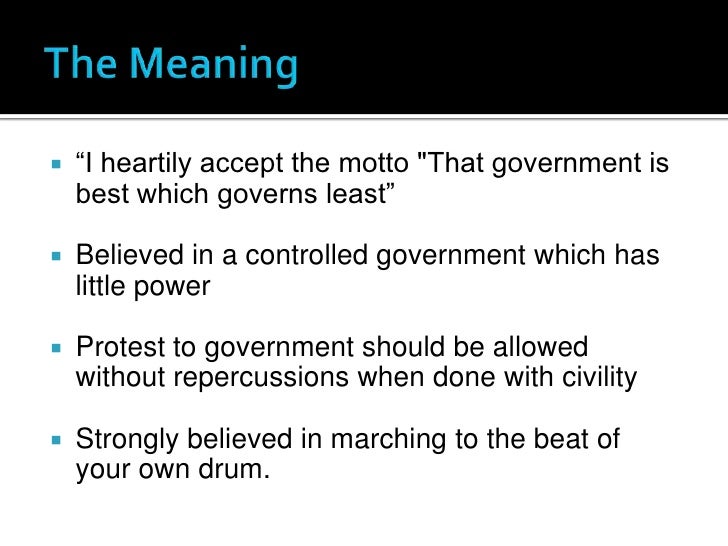Civil disobedience definition the refusal to obey certain laws or governmental demands for the purpose of influencing legislation or government policy characterized by the employment of such nonviolent techniques as boycotting picketing and nonpayment of taxes. Civil-disobedience meaning A form of social protest involving the active but non-violent refusal to obey certain laws demands or commands of an established authority because they are considered to be morally wrong or detrimental.
 Pondiscio Civil Disobedience Means Facing Consequences School Sanctioned Walkouts Rob Students Of That Lesson The 74
Pondiscio Civil Disobedience Means Facing Consequences School Sanctioned Walkouts Rob Students Of That Lesson The 74
Civil disobedience can be defined as refusing to obey a law a regulation or a power judged unjust in a peaceful manner.

Meaning of civil disobedience. Definition of civil disobedience. A symbolic non-violent violation of the law done deliberately in protest against some form of perceived injustice. Civil disobedience is a nonviolent form of protest.
Civil disobedience is the public act of willfully disobeying the law andor the commands of an authority figure to make a political statement. Civil disobedience is therefore a form of resistance without violence. Civil Disobedience as defined by John Rawls 1971 is a public non-violent and conscientious breach of law undertaken with the aim of bringing about a change in laws or government policies.
The civil disobedient finding legitimate avenues of change blocked or nonexistent feels obligated by a higher. Thoreau wrote a famous essay justifying civil disobedience direct action - a protest action by labor or minority groups to obtain their demands. What is the purpose of civil disobedience.
Refusal to obey governmental demands or commands especially as a nonviolent and usually collective means of forcing concessions from the government Examples of civil disobedience in a Sentence In an act of civil disobedience the family sent its tax money to an antiwar organization. But to truly grasp the meaning of civil disobedience one would have to understand the definition and characteristics of civil disobedience itself. It involves people coming together to stand against its government or any oppressor to protest vocally and using all mediums available but without any physical force or violence.
Civil disobedience - a groups refusal to obey a law because they believe the law is immoral as in protest against discrimination. The man who developed the undertones of Civil Disobedience was Henry David Thoreau. The act by a group of people of refusing to obey laws or pay taxes as a peaceful way of.
Civil disobedience cannot be an armed struggle. ˌcivil disoˈbedience noun uncountable when people especially a large group of people refuse to obey a law in order to protest in a peaceful way against the government Examples from the. Civil disobedience is a symbolic or ritualistic violation of the law rather than a rejection of the system as a whole.
Mere dissent protest or disobedience of the law does not qualify. The refusal to obey laws as a way of forcing the government to do or change something. Several key figures looked to his famous paper The Duty of Civil Disobedience for inspiration.
The act by a group of people of refusing to obey laws or pay taxes as a peaceful way of. The definition of civil disobedience is simple. Participants expect to be arrested and are frequently charged with crimes such as trespass failure to disperse or failure to obey an officer.
 The Real Meaning Of Civil Disobedience
The Real Meaning Of Civil Disobedience
 On The Duty Of Civil Disobedience
On The Duty Of Civil Disobedience
 Civil Disobedience Definition Examples Facts Britannica
Civil Disobedience Definition Examples Facts Britannica
 Thoughts On Civil Disobedience
Thoughts On Civil Disobedience
 Access Denied Michaelferrisjr Com Used Cloudflare To Restrict Access
Access Denied Michaelferrisjr Com Used Cloudflare To Restrict Access
 Why Hannah Arendt Argued That Civil Disobedience Pioneer Henry David Thoreau Misunderstood The Idea
Why Hannah Arendt Argued That Civil Disobedience Pioneer Henry David Thoreau Misunderstood The Idea
 Civil Disobedience Definition Examples Facts Britannica
Civil Disobedience Definition Examples Facts Britannica
 Civil Disobedience Definition What Is Civil Disobedience
Civil Disobedience Definition What Is Civil Disobedience
 What Is Civil Disobedience And Why Is It Different From Satyagraha Quora
What Is Civil Disobedience And Why Is It Different From Satyagraha Quora